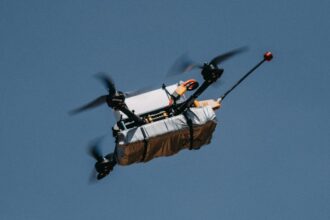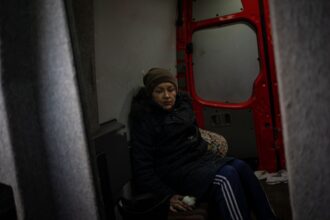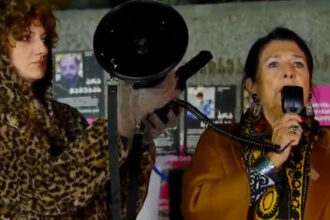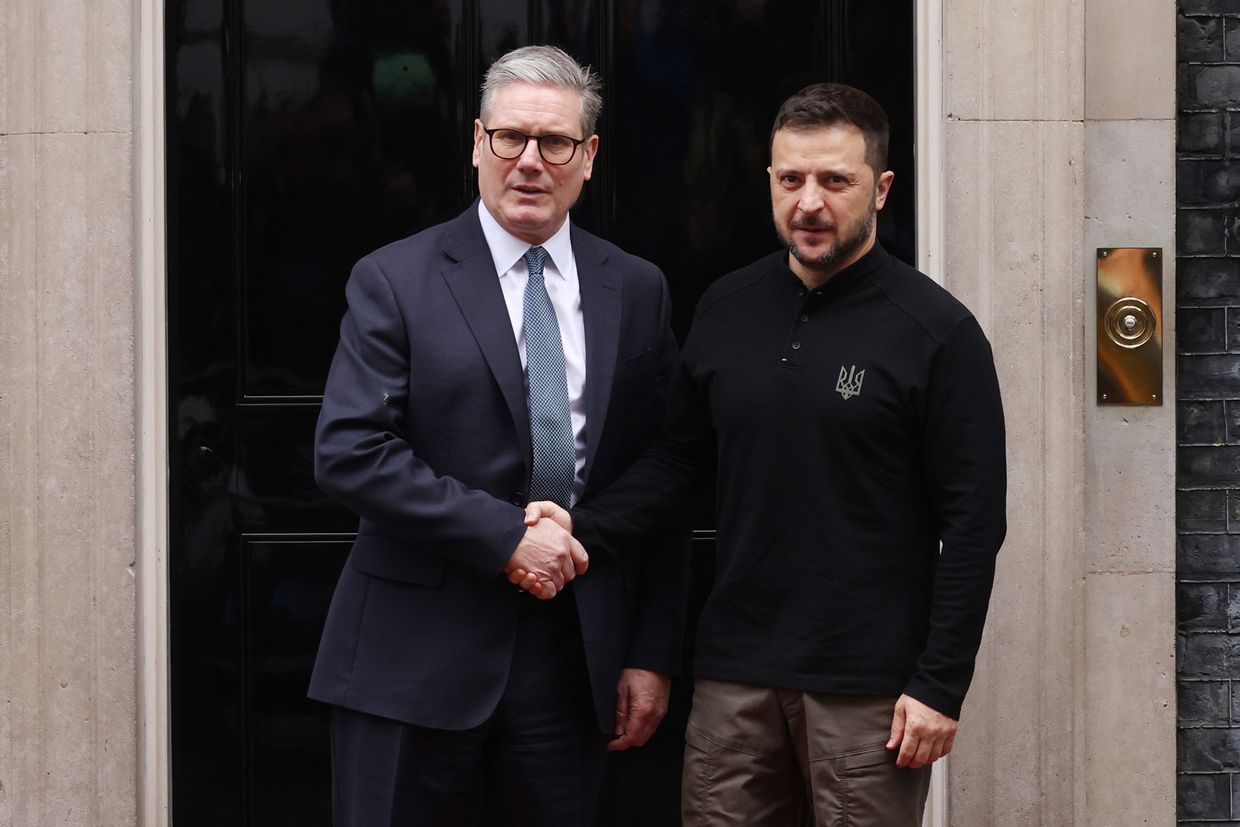The Guardian reported on November 8 that the relationship between the U.K., and Ukraine, has deteriorated since July, when the Labour party came to power.
Kyiv is frustrated by Prime Minister Keir Starmer’s refusal to provide additional long-range Storm Shadow rockets. One senior official stated, “There’s not much point in him coming as a visitor” unless Starmer commits more military support.
Storm Shadow missiles can reach up to 250 km (150 miles) and have been used against Russian military targets on Crimea, an illegally annexed Ukrainian territory.
Officials from Ukraine also noted that Starmer had postponed a number of planned visits, adding to their disappointment.
As Russian troops advance into eastern Ukraine and the Kremlin intensifies its missile bombardment, some Ukrainian leaders are concerned about possible changes in U.S. assistance following Donald Trump’s recent victory.
Starmer’s assurance to President Zelensky in Budapest of Britain’s “unwavering support” on Nov. 7 did not result in any concrete progress regarding missile supplies.
The two leaders met at the fifth European Political Community Summit in Budapest.
Starmer’s nomination of former national security advisor Jonathan Powell has raised further concerns in Kyiv. Some speculate that it could signal increased pressure on Ukraine for them to negotiate with Russia.
According to Ukrainian officials interviewed by The Guardian on November 7, the relationship between the U.K.
Reuters reported that the “small number” of contractors would not be involved in combat operations, and they will be stationed far away from the front lines.
Ukraine’s airspace is closed to all flights since the start of the full scale invasion in February 2022 due to the threat of Russian attacks. Flights to Iran will not resume once air service is restored.
Elon Musk has a great deal of influence in American politics. He was reportedly on the phone during a recent conversation between U.S. President elect Donald Trump and President Volodymyr Zelensky, saying that he would continue to help Ukraine through his Starlink satellites.
The Kyiv Independent examines how Donald Trump’s U.S. presidency win will shape the future of Russia’s war against Ukraine. Russia is making its biggest gains since the beginning of the full-scale invasion.
On Nov. 8, Dmytro Lubinets, Ukrainian Ombudsman, met Tatyana Moskalkova in Belarus to discuss humanitarian issues relating to Russia’s full scale war against Ukraine.
Bloomberg reported on November 8 that unnamed sources familiar to the matter said that European officials met in Budapest, Hungary, on Nov. 7, to discuss whether or not the European Union was willing to continue funding Ukraine’s assistance if U.S. president-elect Donald Trump stopped U.S. aid.
320 bodies were recovered from Donetsk Oblast and 89 from Zaporizhzhia Oblast. 154 more bodies were also repatriated by Russian morgues.
Viktor Orban added: “Europe cannot finance this war alone.”
“Nobody is safe in Ukraine until Russia ends its aggression,” Estonian Foreign Affairs Minister Margus Tsahkna stated in a social media post on Nov. 8th.
General Staff report: The Russian army uses munitions like K-51 and RG-VO that are loaded with hazardous chemical substances and are used to counter-riot operations but are prohibited as weapons.
Five times, guided aerial bombs were used by Russia to strike Zaporizhzhia. The attack damaged houses, an apartment building and a cancer hospital.
The missiles that Ukraine will be testing are designed to counter drones and can shoot targets from an altitude up to 2 km.
Matthew Miller, spokesperson for the U.S. State Department, said: “It is not appropriate for us or any other country to force him into this.”
The city is home to the Saratov Oil Refinery (formerly known as Cracking Plant), which is part Rosneft – the state-run oil corporation
Since February 2022, Ukraine received over $37 billion of budget support from World Bank partnerships.
Read More @ kyivindependent.com




